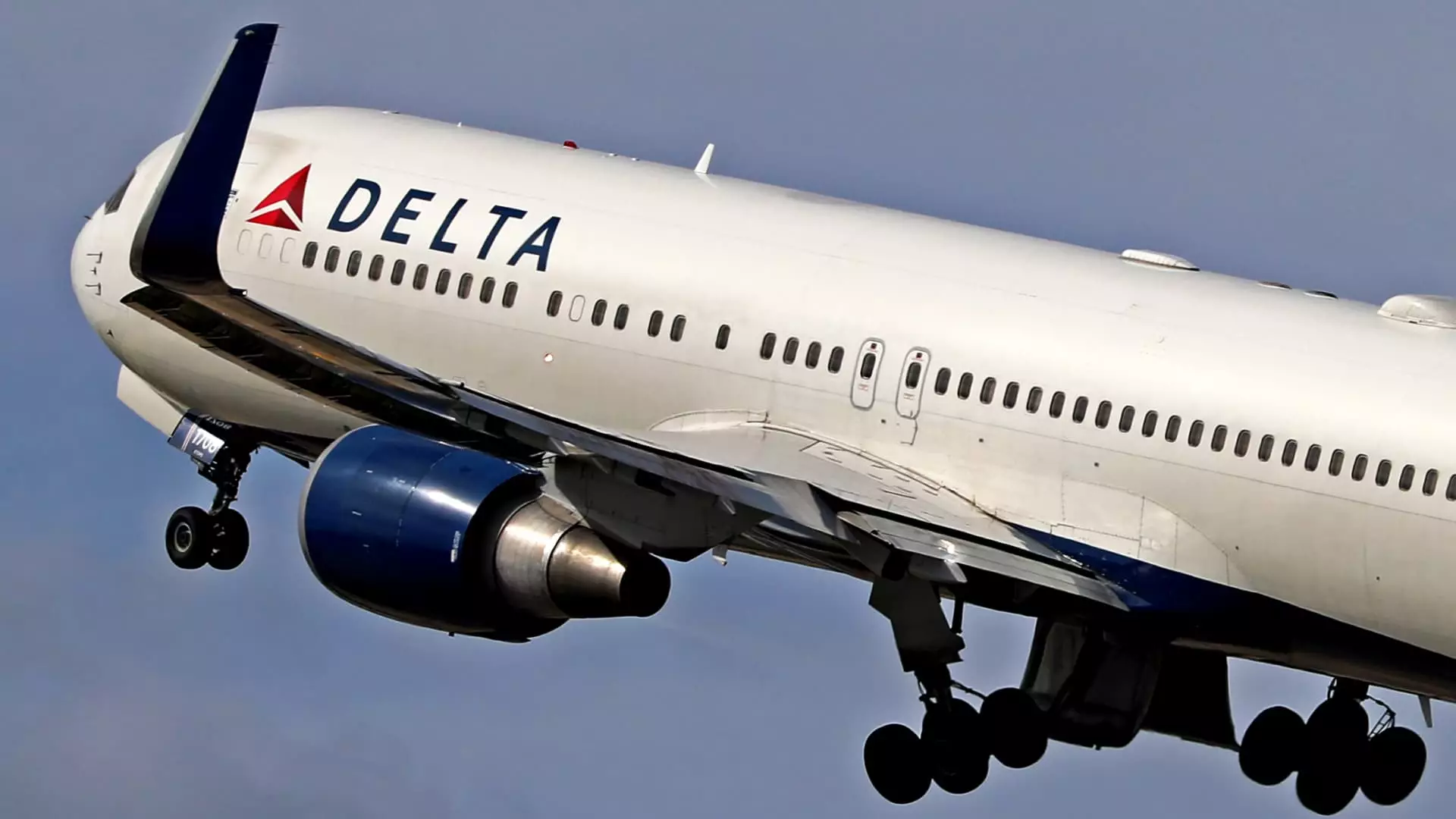Recent days have seen a dramatic slide in airline stocks, igniting further debate over the sustainability of this once-thriving sector. Wall Street is rattled, and for good reason; a combination of external pressures like impending tariffs and internal concerns such as plummeting consumer confidence continue to darken the horizon. The recent downgrade of Delta Air Lines—a company long regarded as the crown jewel of the U.S. aviation landscape—by notable analysts at Jefferies highlights just how precarious the situation has become. Once hailed for its profitability, Delta has now seen its valuation slashed, sending ripples of concern throughout the entire airline industry.
The Ripple Effect of Downgrades
Delta’s situation is pivotal to understanding the broader implications for airlines. When Jefferies downgraded Delta’s stock from a ‘Buy’ to a ‘Hold’ and nearly halved its price target, it was not merely an isolated incident; rather, it underscored the plummeting confidence in airline stocks. With warnings that Delta may need to revise its 2025 forecasts downwards, one has to wonder: Is this the harbinger of an industry-wide phenomenon? American Airlines and Southwest Airlines soon found themselves in the same boat, indicating a rather alarming trend. Jefferies also placed a bearish outlook on Air Canada, a carrier especially vulnerable to cross-border travel fluctuations, further indicating that the turbulence isn’t confined to one airline but rather a systemic issue affecting multiple players.
The Class Divide: Who Gets to Fly High?
What’s interesting in the midst of this carnage is the juxtaposition between high-end and budget travelers. Delta’s executives have mentioned a growing revenue share from premium offerings and lucrative partnerships like their credit card deal with American Express. It begs the question: Is the airline business becoming a class-divided industry, where only the affluent can afford the luxury of air travel? Traditional travelers, particularly price-sensitive customers, are being significantly sidelined, which may further exacerbate the industry’s woes in the face of economic decline.
The Consumer Confidence Conundrum
An alarming statistic reveals that while overall U.S. household spending saw a modest uptick of 1.5% year-over-year, airline travel spending plummeted by 7.2%. This decline can’t be ignored. What does this suggest about consumer behavior? A recent Bank of America report indicates that the dip in travel-related spending correlates strongly with declining consumer confidence. Factors like bad weather and a late Easter may have played roles, but at the heart of it lies an unsettling truth: people are hesitating to book flights. The very foundation of the airline industry—consumer willingness to travel—appears increasingly shaky.
An Industry on the Edge
The NYSE Arca Airline Index recently fell by 18% in the first quarter, underlining a significant departure from the general market trends. This represents the worst quarterly performance for the sector since late 2023. Such sharp declines bring forth serious questions about the true health of the industry, forcing stakeholders to reconsider their investment strategies. With consumer sentiment swinging towards pessimism and airlines becoming increasingly reliant on premium travel, there’s a palpable sense of foreboding looming over the industry. As airlines prepare to announce their earnings, all eyes will be on whether they can defy the odds or if the current storm will further ground them.

